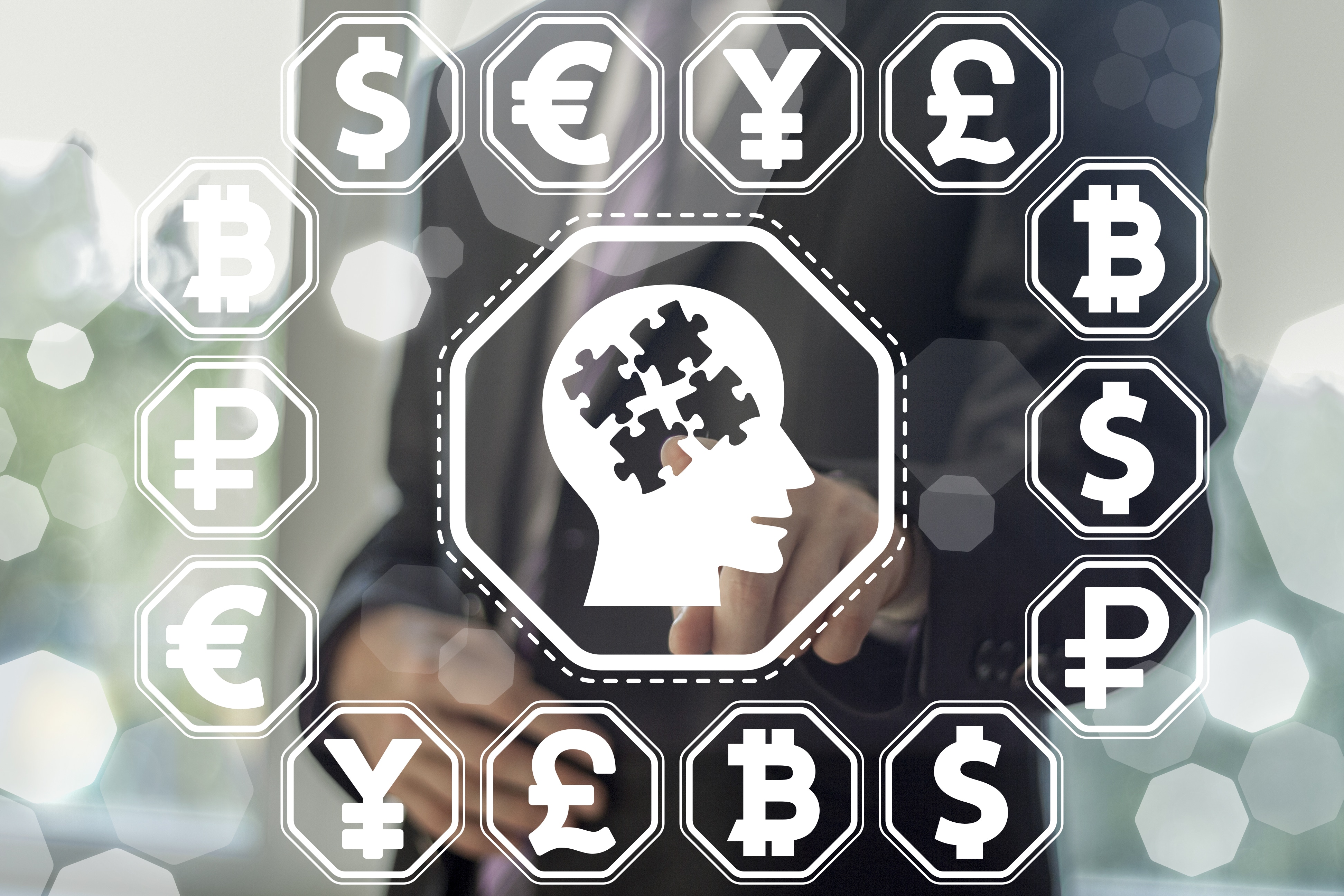
It’s fascinating to think that we may not be as rational or as in control of our perceptions and decision-making as we might think. This is what research has suggested since the groundbreaking work on prospect theory conducted by Daniel Kahneman and Amos Tversky in the late 1970s.
Their work — which essentially showed that human beings do not act rationally when making decisions under risk — gave birth to an entirely new discipline, Behavioural Economics, which combines insights from both the worlds of psychology and economics to study how humans behave when making economic decisions. Kahneman would go on to win the Nobel Memorial Prize in Economics for his contribution to this important work.
The main concept of prospect theory is that humans are somewhat hard-wired to do more to avoid losses than they are prepared to do to make gains. This asymmetry may be a valid survival strategy in an evolutionary narrative, but when faced with the complexity of markets, it can be enormously costly. In this article, we will look at five proven cognitive biases that human beings tend to suffer from and discuss how these blind spots are likely to be costing you money when trading.
1. The bandwagon effect
Ever looked around you to notice that everyone seems to believe in the same new idea, fashion or fad? This is the bandwagon effect. It states that the more an idea or belief is adopted by others, the easier it is for more people to adopt it. This occurs because we are intensely social creatures that look to others for information, but also because we have a need to conform to a group.
Again, you can imagine how this could be viewed as a powerful survival strategy from an evolutionary perspective. The problem is that trading is a highly personal and individualistic practice, so having your own signals overridden by the crowd can be enormously damaging to your account balance.
Many famous investors have admitted that their success is partly down to their ability to do the opposite of what the crowd is doing. They are long when everyone else is short, and short when everyone else is long. Warren Buffett has famously used the formulation of being greedy when others are fearful and fearful when others are greedy.
You cannot be a contrarian if, without realising it, you’ve already been sucked into what others think and believe. Another word for this is ‘groupthink’. This is what happens in market bubbles. The more people who buy in, the more people there are on the sidelines who want to buy in. It pays to remember that the ones who make the most money in bubble scenarios are the ones who buy in right at the beginning when nobody’s talking about the asset in question, or who short at the height of the bubble when everyone else is clamouring to buy.
2. Confirmation bias
Confirmation bias is when we only look for or pay attention to information that confirms our pre-existing beliefs. On the surface, this bias is a little harder to explain with an evolutionary argument. Why would ignoring all evidence that you’re wrong about something be a good thing? Some have attributed this to the fact that as human beings we have very limited information processing abilities and so are forced to make snap judgements. Another interpretation is that confirmation bias is just an extension of what we discussed in the opening paragraphs. We are hard-wired to avoid loss, so perhaps the cost of being wrong causes us to stick to our guns and establish as much evidence as we can for what we already believe to be true.
In trading, this is catastrophic. It causes you to hold on to losing positions far longer than you should — you haemorrhage money while looking for evidence that the bottom is in. It also causes you to see patterns that aren’t really there when performing technical analysis. In the right hands, technical analysis can be a powerful tool, but with confirmation bias holding the steering wheel, traders are prone to use technical indicators to justify what they want to be true. This is an obvious misuse of a tool that was originally designed to help traders visualise market psychology.
3. The disposition effect
Accepted as: “[o]ne of the most robust facts about the trading of individual investors”, the disposition effect describes the tendency of traders to sell assets that increase in value, while holding on to assets that decrease in value. This is the exact opposite of: “cut your losses and let your profits run”, which is supposedly the wise thing to do.
This is partly because profits and losses somehow aren’t as ‘real’ until you finally close the position. Viewed in this light, you can understand why traders hold on to losing positions for much longer than is wise, blindly hoping for reversals. Conversely, you can also understand why traders routinely take profits too quickly. When an open trade is in the green, the gain is also somehow not as real as it is once the position is closed and those profits are booked. Again, we go back to our original idea — that we are fundamentally more concerned with avoiding loss than reaping rewards.
4. Escalation of commitment
Also known as the ‘sunk cost fallacy’, this cognitive bias involves not only continuing on a course when all evidence is to the contrary but also to ‘double-down’ on that decision. Conflicts tend to escalate because of this cognitive bias and governments already at war are particularly vulnerable to it. Once the commitment has been made to go to war, it can be incredibly difficult to withdraw without a victory even in the face of mounting casualties. It’s where sayings like “in for a penny, in for a pound” come from.
Escalation of commitment is also something that we’re prone to in our everyday lives. Have you ever continued using a good service regardless of its utility to you just because you’ve already paid for it? Ever continued gorging on a big expensive meal even after you’re full? Doubled your position on a trade even though the asset dropped 10%? We tell ourselves all sorts of stories to explain why doubling-down in this manner is justified, but it’s normally escalation of commitment or the sunk cost fallacy in effect.
5. Survivorship bias
“I am not saying that Warren Buffett is not skilled; only that a large population of random investors will almost necessarily produce someone with his track records just by luck.” The above quote is taken from Fooled by Randomness: The Hidden Role of Chance in Life and in the Markets by Nassim Nicholas Taleb. In it, Taleb goes to great lengths to show that much of what we take as competence or the validity of our systems comes down to pure dumb luck.
This is also the idea behind survivorship bias. In any endeavour, you only tend to see the winners (those who survived the selection process), not the multitudes who tried the exact same thing but failed for whatever reason. When you only take those who survived into account, you develop a biased view of their individual competencies or the validity of their respective tactics. This is because you’re only considering data from those who succeeded, the failures are invisible because the very selection process excludes them from your view.
In trading, survivorship bias can lead you to massively overestimate your own or some other person’s ability. It’s essentially a hidden form of risk. You may be experiencing a run of good luck, but because you fail to factor in all the times the same strategy led to a loss, you mistakenly attribute your success to your own capabilities. The reality may be that it’s not your strategy at all, but just coincidence that’s responsible for your gains. Falling prey to survivorship bias is especially risky in trading because if you’ve mistaken good fortune for ability, you may be making investments in ideas, systems or people that will almost certainly end up costing you money.
Silver lining?
Cognitive biases are unconscious blind spots, making them powerful because they exist despite the fact that we feel we are pretty rational creatures. Does this mean that we’re doomed to repeat the same mistakes over and over? Actually, no. The act of becoming aware of these biases helps to lessen their grasp. You may not be able to catch yourself all the time, at least not at first, but just being conscious of what you were formerly unconscious of can vastly change your relationship to the material. Poker players have been known to team up and share insights about each other’s tells. The idea is that you can spot another person’s unconscious ticks but not your own. It testifies to the notion that it’s worthwhile to work on these things, especially when there’s money riding on them.
If you’re looking for a financial experience you can trust, HCYM is an established brand that boasts 40 years experience and can help you make informed trading decisions. Head over to their website today.
About HYCM
HYCM is the global brand name of Henyep Capital Markets (UK) Limited, HYCM (Europe) Ltd, and HYCM Ltd, all individual entities under Henyep Group, a global corporation founded in 1977, operating in Asia, Europe, and the Middle East.
About the author – Giles Coghlan, Chief Currency Analyst at HYCM

Giles Coghlan is the Chief Currency Analyst at HYCM. Since joining the company in April 2018 Giles has played a key role in providing his expertise to HYCM’s investors. With over 10 years of experience in trading, Giles is committed to helping traders by sharing his daily fundamental and technical analysis on currencies and major commodities. Giles is also a contributor to major forex and financial media which is locked onto the screens of professional and retail traders worldwide. He provides live, real time analysis keeping readers abreast of the latest moves in the currency, equity and commodity markets. Giles is a gifted, engaging communicator and regularly conducts HYCM webinars, seminars, and trading workshops to equip hundreds of investors across the globe with everything needed to make informed trading decisions. He is passionate about helping traders take their skills to the next level as well as helping them avoid unnecessary trading pitfalls.